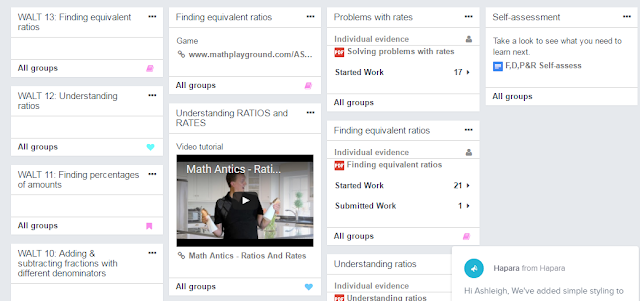Sunday, 30 October 2016
Maths Workspace
To give my students choice and more opportunities to drive their own maths learning, I use workspaces. These are set-up to work alongside the maths workshops as the place to go to practise skills and do evidence tasks when they think they have mastered a learning intention. The workspace has a range of different activities for different learner's tastes - games, tutorial videos, rich tasks, practise activities from workbooks etc.
Modelling books in reading, writing and maths
For my daily lesson plans, I use modelling books. These include learning intentions (often framed as a question), sometimes success criteria, the date student group/individual names for tracking purposes. These books are there for the students to refer back to in following lessons and independent time. I also use the book for formative assessment, leaving examples of students achieving the learning intention and other indicators such as traffic lights.
Maths Workshops
My maths has for the most part this year been structured in a student-driven workshop format. Students do a weekly or fortnightly pre-test (self-checker - pic 1) to see what they know already and what their next learning steps are. Students then put their name down on the workshop booking sheet (pic 2) to show they need to learn that particular skill/concept.
I use this as a guide for who I will be teaching on each particular day. If there are a lot of kids down for one workshop, I will split the group in two or sometimes even three, differentiating them (but to the students it is 'random')
Weekly planning
Weekly planning stems from unit plans for each curriculum area created in our staff groups. This planning is done weekly however is very fluid as lessons move around and plans change.


Subscribe to:
Comments (Atom)









